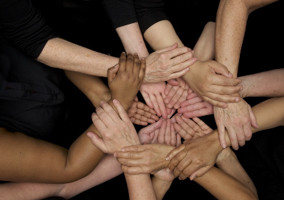Recently I met up with some girlfriends who all worked in or around the fundraising sector in the late 2000s and early 2010s. The conversation soon turned to goings-on at the Chartered Institute of Fundraising and speculation about the identity of the perpetrator of sexual harassment at the Institute’s convention in 2014. I was certain, based on my own experiences at the time, that I knew who it was. But it transpired that my friends were equally sure that it could be various other men, based on their own personal experiences. The names flew thick and fast.
We all had the same recollection: the fundraising industry at the time was full of blokes who were known to be a bit “handsy”. I’d wager that most women that inhabited that world will have tales of being propositioned, groped or worse. It was just the way it was – some of the men were actually described as “gurus” because of their long experience of fundraising; they were revered and untouchable. Most of their victims were younger women who didn’t dare complain lest they commit career suicide.
Fortunately, things are changing. Thanks to movements such as #MeToo and the courage of millions of women around the world who have gone public with their personal testimonies, this kind of behaviour is no longer ok. It’s also not ok for organisations to cover it up when they learn of it. The CIoF saga isn’t over yet – another review has begun and more sordid details will likely emerge of who knew what when, and whose side they took.
At the end of the day, it all comes back to power; who has it, and how do they wield it. This magazine’s news pages consistently feature stories about charities that have been found to be abusing their power and privilege at the expense of the powerless; in recent months these have tended to focus mainly on people from ethnic minorities. Mirrors are being held up to sector organisations and the images staring back are not pretty. Change is still coming too slowly, as the Top 100 CEOs survey demonstrates.
The CIoF story is relevant to trustees, not just because of the governance failings by the CIoF board, but because charity boards also tend to be populated by those that have power – trustees are still overwhelmingly white, male and wealthy. Research among fundraisers by the think tank Rogare two years ago uncovered a number of examples of trustees misusing their positions to gain inappropriate influence beyond the scope of their role, including sexual misconduct.
That said, in the last few years the sector has also proved that it can be effective at cleaning up its act where it falls short. We are seeing more stories about charities that have proactively carried out equity audits, for example, or issued statements admitting to their failings around diversity and pledging to do better. Within the fundraising sector specifically, the shameful exposure of industrial-scale list-swapping after Olive Cooke’s death was swiftly followed by the establishment and adoption of the Fundraising Regulator. The sector knows how to learn lessons when it needs to, and there are still plenty of reasons to feel proud of charities, as the case studies of pandemic responses on pages 10-15 show. So it is doubly disappointing when some organisations and individuals let the side down, either by acting badly themselves or looking the other way when others do.
Let’s make sure that trustee boards read the runes of the CIoF debacle and realise that the game is up on bad behaviour, whatever form it takes. The truth will usually out, so when things do go wrong, get on the front foot immediately and sort them out.
Related articles
Tania Mason: Charities must speak out when they are wronged by the media
There have been few complaints to the Independent Press Standards Organisation by charities, but charities must stand up for themselves, writes Tania Mason.
Tania Mason: Charities must look beyond Covid-19 to the climate emergency
Climate change and its impacts will affect your charity and your beneficiaries, says Tania Mason












